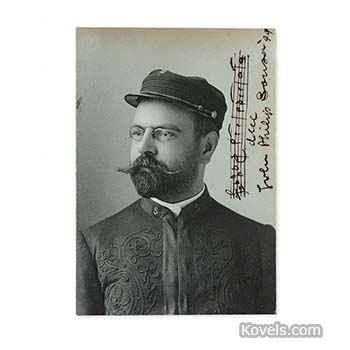Fellow appraiser March Wardell, ISA AM sent me some rather interesting and also disturbing posts from the Antiques Trade Gazette and Kovels on a new law in California, effective Jan 1, 2017 which will have a huge impact on the collectible and autograph market. The law will require a certificate of authenticity for transactions between California dealers and buyers, to include detailed info on the item and who sold it.
Also, a collectible is described as "any autographed item sold for $5 or more. According to a post at Kovels, the will cover such items as a signed baseball card, autographed book and paintings. It does not appear that the law has been well thought out. Good intentions and unintended consequences in application.
The ATG reports
Source: Antiques Trade GazetteA little-publicised California law aimed at protecting buyers of sports memorabilia is threatening to impact the wider art and antiques sector.
Bill 1570, signed into law in the Golden State in September and effective from January 1 next year, demands that owners of ‘collectables’ provide an authenticity certificate before selling or consigning to auction.
Under the bill, ‘collectable’ is defined as any autographed item sold for $5 or more and penalties are potentially severe (see factfile below).
Nuisance lawsuits
Rare book dealers are particularly vexed by the new law as they worry it will place extraordinary demands on paperwork, constitutes an invasion of privacy and could lead to nuisance lawsuits.
The bill, created because of the growing problem of fake autographs, has implications for any sale made in California or a sale to a Californian resident. It could also impact fairs in the area.
Allen Michaan, the owner of California-based Michaan’s Auctions, told ATG: “This legislation was originally about sports memorabilia. Then at the last moment they removed the word ‘sport’ and it now covers everything with a signature.”
He called the measure “draconian” and liable to “make selling anything at auction very difficult. It is trying to kill a fly by using an atomic bomb”.
The bill states a certificate of authenticity must include detailed information about the item and, controversially, also give the name and address of the person who sold it.
Problematic issue
Scott Brown, co-owner of California’s Eureka Books, said the bill was bad for privacy, collectors, art galleries and booksellers.
He told ATG that the need for the name and address of a seller is the “most problematic issue” and that “no bookseller I have talked to feels comfortable publicly naming the private citizens who have sold them autographs”.
The certification requirement under this Californian legislation echoes the debate in the UK about how to ensure that objects for sale, including antique worked ivory or signed memorabilia, are exactly what they claim to be.
Graham Budd, founder of Graham Budd Auctions, a specialist auctioneer in sporting memorabilia in the UK, was not aware of the law change in California until contacted by ATG.
He commented: “Generally I would welcome anything that protects people who are selling genuine items as there is an underlying mistrust of the signed memorabilia sector. But the devil is in the detail. If it is too draconian it will not work.”
He said it is better if the trade self-regulated rather than have regulation imposed.
“I would welcome a unified code of conduct,” Budd added. “Certificates are not necessarily the answer as they can also be forged and faked, creating a whole new problem.”
The Californian trade is hopeful the bill can be amended once it becomes law, but it will be in force for much of next year before any changes can be made.
Factfile: new Californian law
- Bill 1570 is aimed at reducing forgeries in the sports and entertainment memorabilia sectors. However, it is written in such broad terms – describing a collectable as any autographed item sold for $5 or more – that it would appear to include paintings, prints and sculpture and all signed rare books.
- It requires the seller to “indicate whether the item was obtained or purchased from a third party. If so, indicate the name and address of this third party”.
- The bill states that the term “dealer” includes “an auctioneer who sells at a public auction, and also includes persons who are consignors or representatives or agents of auctioneers”.
- The law provides that someone who sues for a violation “shall be entitled to recover, in addition to actual damages, a civil penalty in an amount equal to 10 times actual damages, plus court costs”
and from Kovels
Source: KovelsIf you sell – or buy – baseball cards, autographed documents, books, pictures or just a single celebrity autograph, avoid California. A new law meant to protect collectors of sports memorabilia goes too far. If you sell anything worth more than $5 that has an autograph, it must have a certificate of authenticity. The certificate costs money. And the certificate must include if the seller is insured, the date, place and name of a witness to the appraisal, and who might have sold it before. Anyone selling books, sports or movie memorabilia, art, or “stuff” at consignment shops or house sales must get certificates and the records must be stored for seven years. There is a large fine for selling a fake or anything without the certificate. We autograph hundreds of our books each year. Would we need a certificate for each book? The law covers sales in California or items sold to a California customer and goes into effect in January 2017. Some California shows say they are already losing dealers.
A typical collectible that will be affected by the California law is this autographed photo of John Philip Sousa, composer and conductor known for his patriotic marches. It’s also signed with four bars of music, and sold for $750, long before the California law goes into effect. Photo courtesy of Swann Auction Galleries.


No comments:
Post a Comment